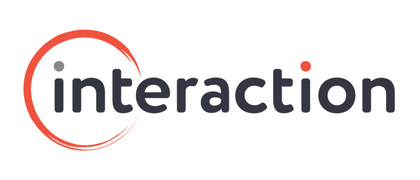Some of the most significant changes to the Fair Work Act are in enterprise bargaining. Enterprise bargaining is where the terms and conditions of employment are set at an individual enterprise level. Prior to the legislative reform, unions were critical of employers who decided to abandon bargaining and set terms and conditions contractually. Employers were often of the view that the pre-approval requirements meant that enterprise bargaining was no longer viable.
These changes introduce new civil penalty provisions and industry-based bargaining changes, aiming to increase wages and replace the modern Award system with industry-wide agreements. It’s important for you to understand the implications of these changes and be ready to adapt.
The key changes to the current enterprise bargaining system will:
- Make it easier for employees and unions to initiate bargaining where an employer may not be willing to
- Open new avenues for employee and union initiated multi-employer bargaining
- Simplify the process for agreement making and approval.
At the same time, it will be much harder for employers to terminate enterprise agreements that no longer meet the needs of the business or to make use of selective enterprise bargaining which is not representative of the workforce the proposed agreement will cover.
Initiating enterprise bargaining
Employee organisations (unions) can start the process of enterprise bargaining without the employer’s consent in certain circumstances, including where:
- the proposed single-employer agreement will replace an earlier single-employer agreement
- it is less than five years since the earlier agreement’s nominal expiry date
- the proposed agreement will cover the same, or substantially the same, employees that were covered by the earlier agreement.
This will allow unions to apply to the Fair Work Commission (FWC) for bargaining orders where they have made a written bargain request to an employer.
What is a genuine agreement test?
The process for the FWC to approve enterprise agreements is being simplified. The FWC will need to analyse whether the agreement has been genuinely agreed by the employees.
This will be guided by a Statement of Principles and deal with:
- Informing employees about bargaining and their right to be represented by a bargaining representative
- Providing employees with a reasonable opportunity to consider a proposed agreement and become informed about it prior to a vote
- Explaining the proposed agreement terms and their effects
- Providing employees with a reasonable opportunity to vote on an agreement
- Any other matters the FWC considers relevant.
While the goal is to simplify the process, it will be very important for employers to be aware of the Statement of Principles and monitor how it is applied in decisions of the FWC.
Coverage requirements and bargaining in good faith
There will also be a new barrier to the approval of enterprise agreements because of collective bargaining in good faith. For example, this would apply where there is a low voter cohort, or there were votes by a selection of employees who are not representative of the broader workforce.
This may mean that the coverage requirements are not met, such as:
- No genuine collective bargaining in good faith occurred during the agreement-making process
- An agreement is proposed to cover employees across a wide range of industries, occupations, or classifications, but the voting cohort included only employees engaged in a single industry, occupation or classification
- A small cohort of employees has voted on an agreement proposed to cover a wider workforce.
Changes to the Better Off Overall Test
From June 2023, the Better Off Overall Test (BOOT) will be simplified by removing the FWC’s line-by-line assessment of a proposed enterprise agreement against the terms of the underlying Modern Award.
The new provisions will require the BOOT be applied as a global assessment. The FWC will only consider the patterns or kinds of work, or types of employment, which are reasonably foreseeable at the time of the BOOT.
Where an agreement does not satisfy the BOOT, the FWC can amend or remove that term to allow the agreement to pass the BOOT. It is the FWC and not the employers, employees, or unions, which decides on amendments – although the FWC must consider their views.
Employers, employees, and unions will have the ability to reapply to the FWC to reconsider whether an enterprise agreement passes the BOOT. This will be in circumstances where the work or types of employment covered by the agreement have changed since the FWC initially considered the application for approval.
Fixing errors in enterprise agreements
The FWC can now vary an enterprise agreement to correct or amend an obvious error, defect, or irregularity, such as a typo or obvious omission. If the FWC can amend an agreement in other circumstances too. For example, if an earlier draft of an agreement was submitted by mistake, the FWC can reconfirm its approval decision. Variation of an enterprise agreement can be on the FWC’s own initiative or application by any party to an enterprise agreement.
Termination of an enterprise agreement after the nominal expiry date
The FWC must consider the interests of employees covered before terminating an enterprise agreement. This completely changes the current public interest test.
Termination of enterprise agreements will only be permitted where any one of three requirements are satisfied:
- Continuation would be unfair to employees
- It does not and is unlikely to cover any employees
- Continuation would threaten the business’ viability, termination would reduce risk of redundancy, insolvency or bankruptcy, and the employer has guaranteed employee termination entitlements.
If employees are given a guarantee in relation to their termination entitlements, it will remain in effect for four years, unless otherwise approved by the FWC. There are new provisions to bring zombie agreements to an end.
Multi-employer bargaining
The current multi-employer bargaining system from June 2023 will be replaced by three distinct streams:
- Bargaining for single-interest agreements
- Supported bargaining agreements
- Cooperative workplace agreements
Each stream will require representation by an employee organisation. However, the FWC can exclude parties, such as unions, from participating in bargaining if they have a history of non-compliance with the Fair Work Act. This includes if they have contravened a civil penalty provision or committed an offence against the Fair Work Act in the last 18 months.
Bargaining for single-interest agreements
An employer, or two or more employers that are single interest employers, can bargain for a common enterprise agreement. From June 2023 changes extend to who can apply to the FWC for a single-interest employer authorisation. This has been referred to as multi-employer bargaining.
Employee bargaining representatives (including unions) can bargain where the application is supported by most of the relevant employees.
Once a multi-employer enterprise agreement is in place, unions can apply to the FWC for the agreement to be varied to include additional employers and their employees.
Supported bargaining agreements
Supported bargaining will replace the existing low-paid bargaining stream for employers with identifiable common interests in sectors / industries that have prevailing low pay and conditions, such as aged care, disability care and early childhood education and care. Importantly, the legislative changes grant the Minister power to declare an industry, occupation or sector eligible. This means there is a possibility that this won’t be restricted to low paid sectors.
An employer covered by a supported bargaining authorisation will be unable to make any other kind of enterprise agreement with its employees. Any existing single-enterprise agreements applying to the employees covered will also cease to apply.
Once a supported bargaining agreement is in place, unions can apply to the FWC for an order varying the agreement to cover additional employers and their employees, which the FWC must make if most of the employees want to be covered by the agreement.
Employers who have an existing in-term single-enterprise agreement will not be covered by a supported bargaining authorisation unless the FWC considers the existing agreement was made primarily to avoid a supported bargaining authorisation.
Cooperative workplace agreements
Cooperative workplace agreements replace the existing multi-employer bargaining stream. Cooperative agreements remain voluntary for employers to participate in where they are not subject to a supported bargaining authorisation immediately before making the agreement.
Industrial action cannot be taken in respect of bargaining for a cooperative workplace agreement. FWC intervention, including conciliation and arbitration, is available to the parties by consent.
Stay informed and seek assistance
We know that the recent IR changes and employment law developments in Australia might seem overwhelming, but with a bit of understanding and the right approach, you can maintain a compliant, productive, positive workplace. Stay ahead of these changes by:
- Staying informed about the latest developments in industry-based bargaining and their impact on your business sector
- Engaging with industry associations, legal advisors, or HR consultants to understand and navigate the new bargaining landscape
- Developing a strategy for negotiating and implementing industry-wide agreements that suit the needs of your business
By staying informed and fostering a supportive environment, you and your HR team can successfully navigate these changes and ensure a thriving work culture and a resilient organisation.
And remember, you don’t have to face these changes alone. Interaction Consulting is here to assist you in navigating these changes through effective strategy consultation, cultural improvement, and policy support. We’re just a call away, ready to help you create a workplace that’s compliant, supportive, and ready for the future.
This new environment will be very challenging for employers, however strategic opportunities will arise from the changes which can be beneficial for business. We can help you navigate these changes – just give us a call on 02 6282 9111.
The content of this article is for information only and is not legal advice. Seek legal advice before acting or relying on the content.









